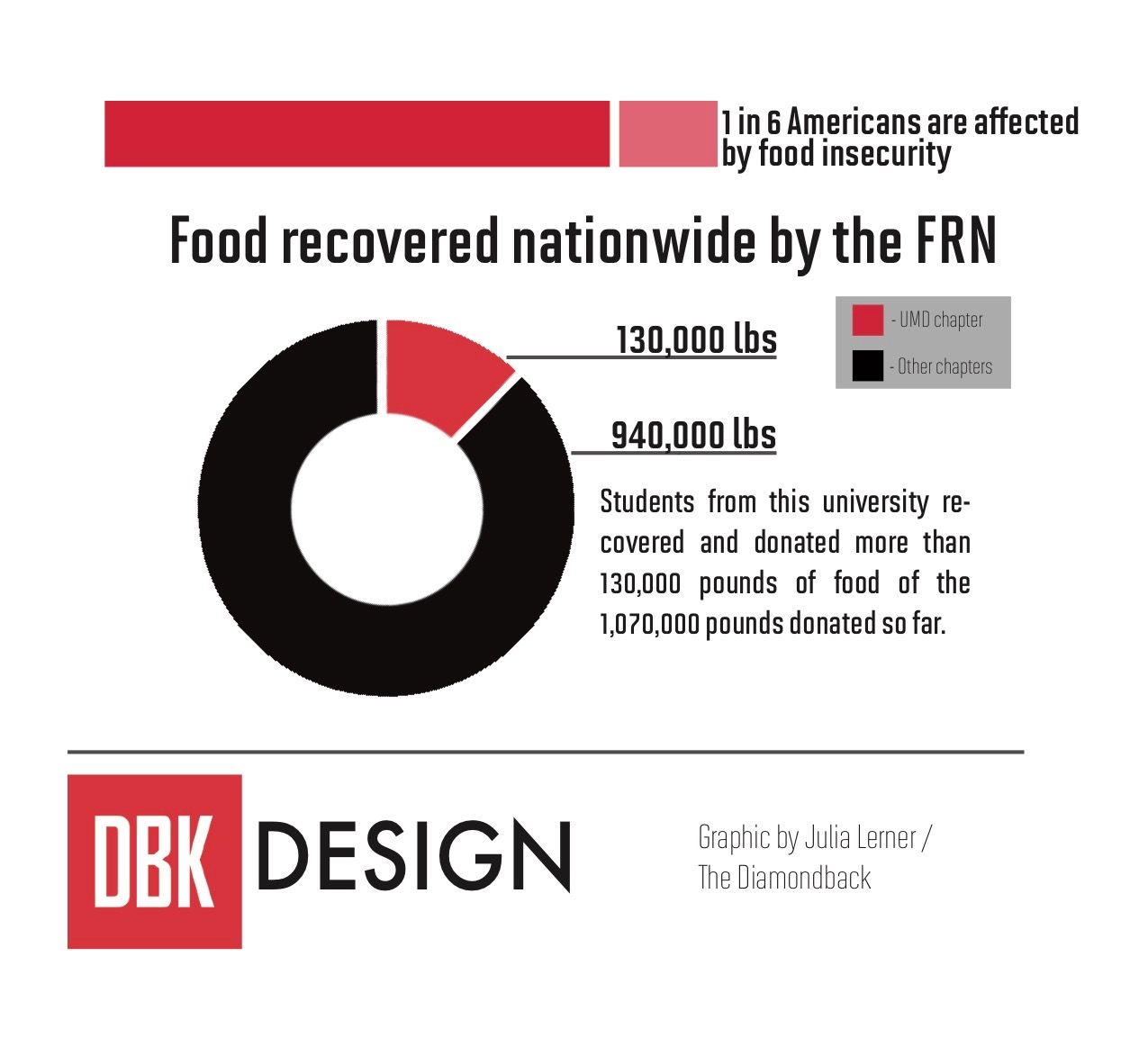
Food recovery
After establishing more than a hundred chapters, getting thousands of students involved and salvaging 1 million pounds of food, the Food Recovery Network — a national organization founded at the University of Maryland — is still working to make sure no meal goes to waste.
The nonprofit student organization founded in 2011 to fight hunger and food waste has more than 160 chapters on campuses all over the country, and has become the largest student-led movement fighting food waste in America, according to the network’s website.

Food recovery
The network works with campus dining services and local restaurants to recover surplus perishable food and donate it to people in need through hunger-fighting community groups. Last month, it collected its millionth pound of food.
READ MORE: Food Recovery Network co-founder Ben Simon named social entrepreneur by Forbes Magazine
“One in six Americans are affected by food insecurity, and our country throws away millions of pounds of food, so food waste is an important issue to discuss,” said Hannah Cather, a member support fellow with the national network.
Students from this university have recovered and donated more than 130,000 pounds out of about 1,070,000 pounds of food so far, said Cassidy Pillow, a Food Recovery Network partner liaison for this university.
“Every one of our schools, as well as the communities they serve, are unique,” Pillow said. “Because of this, we focus on helping our students figure out how we can best adapt our model to meet their communities’ specific needs. … Reaching this goal means that although we are all working on this effort in different ways and different places, our work has come together to produce one great impact.”
This university’s chapter has expanded as well, working with Dining Services and the sustainability office to take steps toward zero waste, said LeAnne Young, a co-president of the chapter. The chapter has recovered and donated more than 16,500 pounds of food this semester, she said.
READ MORE: Terps Against Hunger volunteers make about 250,000 meals
“Most of our food comes from 251 North, football games, basketball games and the catering kitchen,” Young said.
By partnering with student groups on campus, such as the service fraternity Alpha Phi Omega, the Muslim Student Association and Civicus, volunteers are able to recover food nightly from 251 North, the senior biology major said.
“On average, we collect 200 to 300 pounds of food every weekday night from 251,” said Nivetita Ravi, this university’s Food Recovery Network chapter’s dining hall coordinator. “We collect around the same amount during sport games too, but because 251 is daily, it has more of an impact.”
The chapter’s recoveries are running “more smoothly than ever” as a result of a new partnership with this university’s Department of Transportation Services, Young said. The chapter uses a DOTS shuttle to bring food from 251 North to its partner agencies.
“We used to have volunteers provide cars, so sometimes, especially during finals week, we wouldn’t have enough drivers,” said Ravi, a junior chemical engineering major. “This year, it’s been really convenient to have a dependable service every night.”
The chapter also added a recovery leader this semester to be in charge of every night’s collection, she said.
“Now, one of the 12 members of the FRN leadership team attends the recovery every night to make sure numbers are correctly recorded, safety is followed and to deal with any issues or concerns — basically to keep better track of everything,” Ravi said.
The national Food Recovery Network has 14 full-time employees who work to help students with their programs and continue to expand the network, Pillow said.
“Of course we would love to be in every college and university in the country, but further than that, we want food recovery to become the new norm,” she said.



